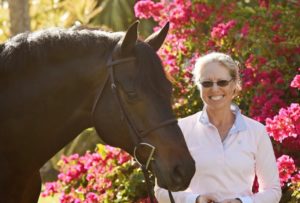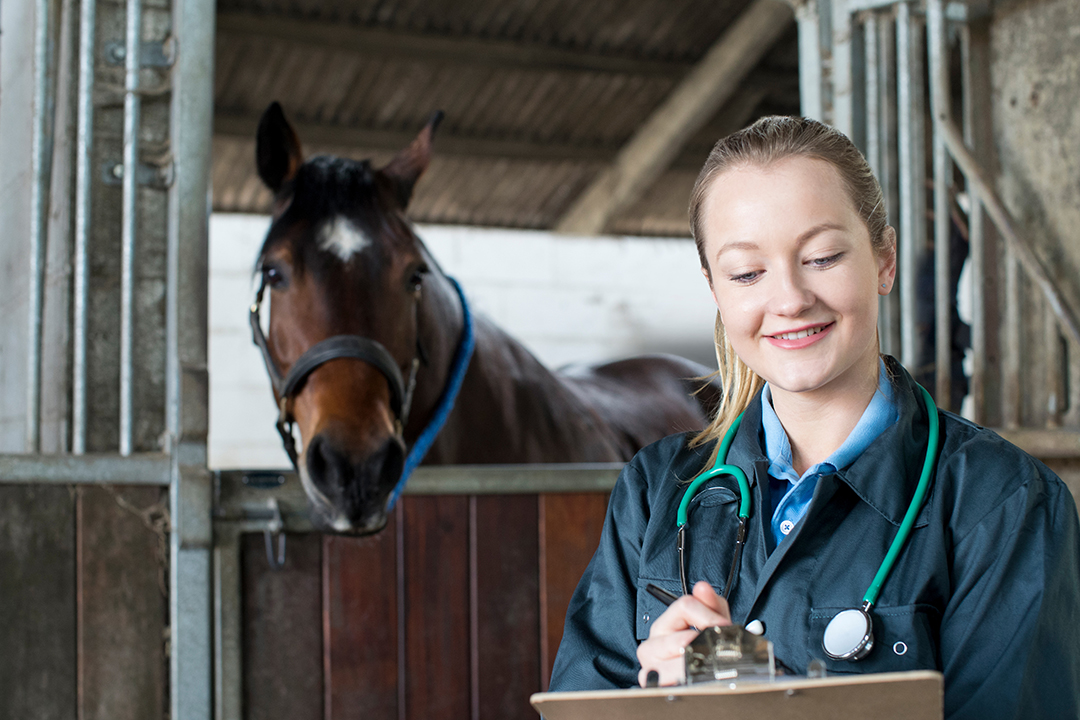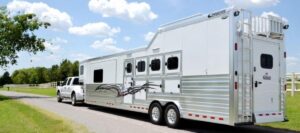A California appellate court has set aside a jury verdict of $46,000 awarded to the purchaser of a horse that turned out to have a bone cyst. The purchaser sued the veterinarian who performed the pre-purchase examination of the horse on the theory that the veterinarian was negligent in his evaluation of the horse, and had its full veterinary history been disclosed to her, she never would have bought it. The appellate court reversed the judgment upon concluding that the purchaser’s expert witness had only testified that she disagreed with her colleague, not that he had breached any applicable standard of care.
According to the court, the case involved a horse named “Poncho” who was a performance horse competing in the hunter jumper discipline. In January 2006, the horse began to manifest physical signs of a left hind lameness that was interfering with his ability to perform in competition. As a result, he was seen by a veterinarian, (“Dr. M”) who evaluated the horse to determine the cause of his lameness. Dr. M performed a bone scan, radiographs, and an X-ray to pin-point the source of Poncho’s lameness. The test results showed that Poncho was suffering from a condition in the cervical facets (vertebrae) of his neck. Dr. M treated Poncho’s condition by administering injections directly into Poncho’s neck. This treatment alleviated Poncho’s lameness and performance issues.
“A month later, Poncho’s lameness issues returned and he was pulled from his competition training. Poncho remained ‘laid up’ from his training for the next six months. Poncho continued to compete as a hunter jumper horse for the next two years. During that time, however, Poncho would occasionally show lameness in his legs. Each time Poncho exhibited lameness he was taken to Dr. M for treatment. Dr. M administered injections into the cervical facets of Poncho’s neck to treat his lameness issues.”
The woman who filed the lawsuit was an owner and rider of competition hunter jumper horses. She learned that Poncho was available for sale in August of 2008. At the time, her trainers encouraged her to look into purchasing Poncho because he would “be good for [her] riding” and help make the competition schedule easier for her other horse. Instead of an outright purchase of the horse, the woman first leased Poncho for a trial period. During the trial lease period, the trainers contacted Dr. M and asked him if he could release Poncho’s medical history. The trainers were aware that Dr. M was Poncho’s current treating veterinarian. On September 12, 2008, Dr. M responded to the trainers’ inquiry in an e-mail. His e-mail explained that the horse had a “habit of starting out stiff and warming out of it,” and that he had looked at the horse numerous times and performed diagnostic blocks, bone scans, and radiographs. He further explained that he had concluded that Poncho’s “neck was a significant part of his problem” and that it had been treated with injections. However, Dr. M did not go into detail about what tests and treatments had been done on Poncho.
“Dr. M also called one of the trainers to discuss Poncho’s medical history. Dr. M wanted to make sure that they wanted to purchase Poncho because he was a horse that was “going to require some maintenance.” He then “went over [Poncho’s medical] history detail by detail.” At the conclusion of the discussion, the trainer asked Dr. M to write down the dates of the treatments he had given to Poncho. That way, the trainers could follow up on Poncho’s treatments with their regular veterinarian, if they decided to purchase the horse. Dr. M recorded the dates of the treatments, but did not send a copy of Poncho’s complete medical history to the trainers.
“After leasing Poncho for approximately two months, [the woman] decided she wanted to purchase the horse. Before finalizing the purchase, however, she wanted to have a prepurchase examination performed on Poncho to make sure he was healthy and sound enough to compete as a hunter jumper horse. [The woman] then contacted the trainers and asked them to schedule a prepurchase examination with Dr. M because of his history with Poncho. The trainers scheduled the appointment.
“On October 30, 2008, Dr. M performed the prepurchase examination on Poncho. The prepurchase examination consisted of both a physical evaluation and medical testing. The prepurchase examination yielded some abnormalities. Specifically, Dr. M noted that Poncho had “low heels on both of his forefeet” and he had a slight “left hind lameness.” Further, after examining Poncho’s radiographs, Dr. M found that Poncho was suffering from “two kissing spines” and “a small spur on [his] left stifle.” However, Dr. M opined that Poncho’s “way of moving was essentially unchanged from over the couple years” that he had known the horse. Based on his findings and his past knowledge of the horse, Dr. M concluded that Poncho would be suitable to use as a competition hunter jumper horse.
“Dr. M recorded all his findings and conclusions in a written prepurchase examination report. At the bottom of the report, Dr. M included a note that stated, “Per discussion with [the trainer], a summary of the treatment history is outlined below.” Below the note, Dr. M wrote a brief outline of the treatments he had administered to Poncho, and the dates he provided those treatments. This included the cervical facet injections that he administered to Poncho between 2006 and 2008. A copy of this prepurchase report was sent to [the woman] and the trainers.
“After Dr. M finished the prepurchase examination, he called [the woman] and left a voice mail on her cell phone. Dr. M explained all the findings and conclusions that he had drawn from the prepurchase examination of Poncho. Further, he explicitly noted that he had administered cervical facet injections to Poncho in the past. However, he explained that Poncho was “sound” on the day of examination and that he believed the horse was suitable for his intended use.
“Based on Dr. M’s representations, [the woman] purchased Poncho on November 23, 2008. Shortly thereafter, [she] began to ride and train Poncho for competition. In January of 2009, Poncho started to exhibit lameness issues in his front legs.” He was then taken to a different veterinarian for an evaluation. This veterinarian recommended that Poncho be subjected to a bone scan. Poncho was then referred to Dr. M for the bone scan. The results of the bone scan revealed a “hot spot” on Poncho’s left front elbow. Dr. M then performed an X-ray on the elbow to determine the cause of the “hot spot.” The X-ray revealed that Poncho had a large bone cyst in his elbow joint. To treat Poncho’s bone cyst, the new veterinarian administered injections directly into Poncho’s elbow. While these injections alleviated Poncho’s lameness, he was unable to immediately return to his competition training. A year later, Poncho began to manifest lameness problems once again, and was pulled from his training. The owner’s new treating veterinarian opined that Poncho could no longer be ridden as a competition hunter jumper horse because of the limitations caused by his bone cyst.
Poncho’s owner sued Dr. M for veterinary malpractice alleging that he had been negligent in performing the prepurchase examination of Poncho. The matter proceeded to trial.
During the course of discovery, Poncho’s owner received a copy of Poncho’s prior medical history. She claimed that this was all new information to her and that Dr. M and her trainers never told her about Poncho’s past medical issues before she purchased the horse. She claimed that had she had this information, she never would have bought the horse.
The jury found Dr. M negligent and awarded $46,000 to Poncho’s owner. Dr. M successfully appealed.
On appeal, the court found that the expert witness for Poncho’s owner merely testified that he disagreed with Dr. M — not that Dr. M had committed malpractice. “Here, [the expert witness] never testified that Dr. M’s performance of the prepurchase examination of Poncho, or the subsequent disclosure of the horse’s medical history, “was not consistent with what other [veterinarians] in the community would have arrived at under similar circumstances in the exercise of reasonable care.” From what can be ascertained from the record, it appears that [the expert witness] simply disagreed with the conclusions that Dr. M drew from the prepurchase examination, and he thought that “the best approach” in disclosing Poncho’s medical history would have been to have a discussion with both [the purchaser] and the trainers. However, this testimony, by itself, does not establish the standard of care. “[T]he fact that another physician or surgeon might have elected to treat the case differently or use methods other than those employed by [the] defendant does not of itself establish negligence.” Without explaining how an average veterinarian of ordinary skill would have treated the facts of this case differently than Dr. M, it cannot be said that [the expert]’s testimony established any relevant recognized standard of care. Since we conclude that there was no evidence establishing the standard of care, then there was no substantial evidence to support the jury’s verdict of negligence. Therefore, the judgment must be reversed.”
This case illustrates how the fact that veterinarians may disagree with one another is not proof of “malpractice.” It also illustrates how a jury of average citizens did not think that what Dr. M did in this case was OK – even though he was vindicated by a higher court on appeal. But what I can’t figure out is why this case was so hard fought – because Poncho’s owner certainly spent more than $46,000 on attorneys’ fees. Without knowing for sure, I would guess that for the owner, it was a matter of principle.








